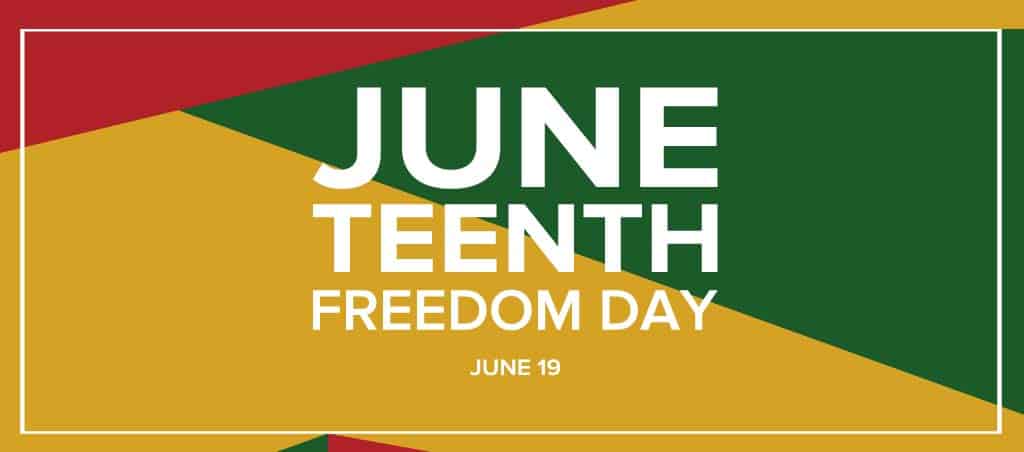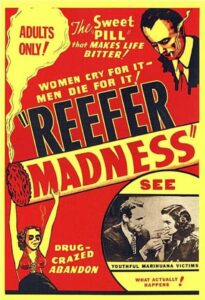
In honor of Juneteenth, we at Harborside want to discuss the history of this national holiday and its relevance to the continuous systemic inequities within the United States—especially in the cannabis space.
After tireless work by the community and Texas Representative Sheila Jackson Lee, Juneteenth has finally been declared a federal holiday. Today we celebrate the power of the Black community who have endured the evils of slavery and racism since long before this country was established—and long after the Civil War ended. On paper Juneteenth marks the end of slavery, but not the end of racism. After the Civil War, profiteers utilized white supremacy and weaponized the justice system to incarcerate Black people and other minorities as a means to capitalize on prison labor. Which brings us to the underlying racist current of cannabis prohibition.
Cannabis usage amongst Black and white populations is equal, yet Black people are FOUR TIMES more likely to be arrested for it, and in some states TEN TIMES. It’s no coincidence that former backers of the horrific War on Drugs, such as John Boehner, are now profiting off of cannabis legalization when 40,000 prisoners are still locked up for cannabis related crimes. It’s no coincidence that business owners in the cannabis industry are 81% white, and only 4% Black.
So, where do we go from here?
First, let’s revisit how we even got here.
The End of Slavery?
The holiday of Juneteenth celebrates the end of legal slavery in the American South. The Emancipation Proclamation was instated on New Year’s Day of 1863, but because of the Civil War, it wasn’t until June 19th, 1865 when Union troops arrived in Galveston, TX that the proclamation took effect. And yet slavery was still legal in the Northern states of Kentucky and Delaware until the December of 1865 when congress ratified the 13th Amendment—outlawing slavery except when used as a punishment for a crime. It was at this time that those who profited off of slavery turned to free prison labor. Through the systematic undermining and criminalizing of Black and Brown people via an ever evolving selection of tactics.
“The slave went free; stood a brief moment in the sun; then moved back again toward slavery.
After the 13th Amendment, slavery was altered from a blatant economic structure to a far more nebulous one. W.E.B. Du Bois’s essay Black Reconstruction addresses the predatory nature of the American economy after the Civil War: “the slave went free; stood a brief moment in the sun; then moved back again toward slavery.” First the Black Codes swept across the American South in an attempt to criminalize Black social and economic advancement. During this time many former Confederate soldiers found work in policing, an occupation with deep roots to Slave Patrols, further adding to a brutally oppressive environment. When the 14th Amendment was instituted banning the Black Codes, along came the Jim Crow laws, Klan atrocities, convict leasing (where prison labor was leased to businessmen), the ramped up development of private prisons, and an ever-oppressive policing system. This horrifying game of Whac-A-Mole suggests that the profiteers of unpaid labor have no intent of ending this inhumane practice, but instead work to shift the public’s perception of it to stay one foot ahead. Fast forward to the 21st Century, and you’ll see the same methods used to destabilize Black communities with insidious intent.
This is where cannabis prohibition comes into play.
Replacing One Prohibition with Another

The repeal of alcohol prohibition in 1933 led Harry Anslinger, the head of the Federal Bureau of Narcotics, to seek out a new enemy to justify his department’s budget and his racist ideology. He turned his attention to cannabis because it was widely popular. He could now have a larger pool of people to criminalize while practically receiving blank checks from the government. From 1930 to 1937, cannabis was demonized through libelous racist propaganda and ridiculous accusations such as the claims in the often mocked film Reefer Madness. The Marijuana Tax Act federally outlawed cannabis in 1937 opening the possibilities for larger scale incarceration—a windfall for prison labor profiteers, police budgets, and Harry Anslinger.
The reason that this plant has been so harshly cracked down upon is purely for profit. Manufactured fear and stigma over this plant heroicize the police who are hard on “drugs” to obscure the actual intent of generating dollars. From 1937 to 2013, 23 MILLION PEOPLE were arrested for cannabis related charges in the United States. It became a convenient and profitable way to source unpaid labor, and it’s protected by the 13th Amendment. Privatized prison companies such as GEO Group and CoreCivic have been lobbying against legalization for decades, prohibition still remains a cash cow for them. So when cannabis usage is practically equal amongst Black and white folks, why are Black people FOUR (up to TEN in some southern states) times more likely to be arrested for it? Because this country has yet to shake it’s addiction to exploiting marginalized communities for profit. The War on Drugs is clearly just another incarnation of the Black Codes.
While this is a cursory overview of cannabis prohibition, society is becoming increasingly wary of the absurd nature of it, yet the game of racist Whac-A-Mole continues. Former War on Drugs enthusiasts have begun profiting off of the industry as stigmas subside. Former Republican House Speaker John Boehner who once said he was “unalterably opposed” to cannabis legalization and who also received $24,000 from private prison companies in 2012 alone, now profits off the cannabis industry. Have they had a change of heart? No. That’s why 40,000 people are still incarcerated for cannabis related charges in the United States. In 2019, former slave state Mississippi sentenced 38 year old Allen Russell to a life sentence for 1.5 ounces of cannabis (side note: Mississippi did not recognize the 13th Amendment until 1995). And as many cannabis entrepreneurs turn their activism to banking rights, they turn their backs on the unjustly incarcerated.
The Road Ahead
You would think that a fair government would prioritize those that it has targeted for profit for a cannabis business license. However, that’s not the case. One of the many obstacles to obtain a cannabis license is the fact that one must have a clean record. The lopsided nature of cannabis arrests means that the cannabis space does not provide equal opportunity to the Black community. City equity programs have recently come into play but still operate more performatively than strategically. Systemic racism has made Black economic advancement a cruel obstacle course alongside many generations of oppression.
To make cannabis a socially equitable space, we need to look at the very uncomfortable reality of it. Harborside Board Member, Educator, and Cannabis Activist Patricia Brooks addresses the issue directly “the fight for equality often is not as quick as we would like it, but as Dr. King said ‘we shall overcome’. Our mission is to honor our past struggles and the hope that change will not take forever.”
Fortunately this missing link within the cannabis space is one step closer to becoming bridged. Under the guidance of Patricia Brooks, Peralta College in partnership with Harborside, has begun collaborating on a Cannabis Certification Program at the community college level for greater accessibility and inclusivity. This program will help those who enter the cannabis space develop the portfolio of skills needed to get a foothold in this industry. Covering supply chain, consumer trends, market demands, and more. The Peralta College Cannabis Certification Program seeks to construct a future where social equity for all is the norm. To further our dedication to education, Harborside will be granting two scholarships to the Cannabis Certification Program per school year.
We realize our work is far from over. This discussion doesn’t just end after Juneteenth.
Look out for our upcoming talk with Patricia Brooks as we explore the steps needed to make the cannabis space a socially equitable industry. Stay tuned as we partner with Peralta Community Colleges to launch Harborside scholarships for cannabis education!

